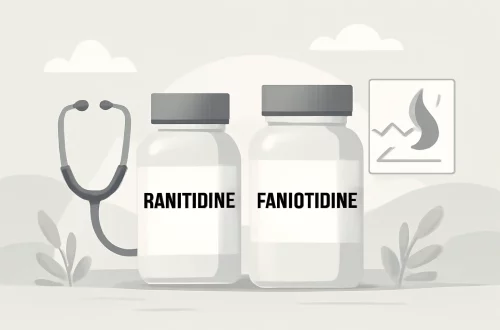
Delicious and Healthy Guinea Pig Treats Your Pet Will Love
Guinea pigs are adorable, social creatures that make wonderful pets. Their playful nature and unique personalities offer endless joy to their owners. However, like all pets, they require a balanced diet to thrive. While hay, fresh vegetables, and pellets are the staples of a guinea pig’s diet, treats can play an important role in keeping your furry friend happy and healthy. Treats can come in various forms, from fresh fruits and vegetables to special store-bought snacks designed specifically for guinea pigs.
When choosing or preparing treats for your guinea pig, it’s essential to focus on their nutritional needs. Guinea pigs have specific dietary requirements, including a high intake of vitamin C, which they cannot produce on their own. This makes it crucial to provide them with treats that not only satisfy their taste buds but also contribute positively to their overall health. As pet owners, it’s our responsibility to ensure that the treats we offer are safe, nutritious, and enjoyable for our guinea pigs. By incorporating healthy treats into your pet’s diet, you can enhance their well-being while also strengthening the bond you share.
Let’s explore some delightful and nutritious treat options that your guinea pig will love!
Nutritious Fresh Fruits for Guinea Pigs
Fresh fruits can be a delightful treat for guinea pigs, offering a burst of flavor and a spectrum of nutrients. However, it’s important to remember that fruits should be given in moderation due to their sugar content. Some excellent choices include apples, strawberries, blueberries, and oranges.
Apples, for instance, are a fantastic source of vitamin C and fiber. When offering apples as a treat, ensure you remove the seeds and core, as these can be harmful to your pet. A small slice is all that’s needed to make your guinea pig’s day!
Strawberries are another popular fruit among guinea pigs. They are rich in antioxidants and vitamin C, promoting a healthy immune system. You can offer a whole strawberry or cut it into smaller pieces. The vibrant color and sweet taste will surely attract your furry friend.
Blueberries are small but mighty in nutritional value. They are packed with vitamins and have anti-inflammatory properties. You can offer one or two blueberries at a time. Their bite-sized nature makes them easy for guinea pigs to enjoy.
Oranges, while higher in sugar, can still be offered occasionally. They are a good source of vitamin C and hydration. Just a small wedge will suffice. Keep in mind that the acidity in oranges may not sit well with every guinea pig, so it’s best to introduce this fruit gradually.
When feeding fruits, always wash them thoroughly to remove any pesticides, and introduce new treats gradually to monitor any reactions. By incorporating a variety of fresh fruits into your guinea pig’s diet, you can keep their meals exciting while providing essential nutrients.
Vegetable Delights: Greens Your Guinea Pig Will Love
Vegetables are a crucial component of a guinea pig’s diet, and they can also serve as delicious treats. Dark leafy greens are particularly beneficial, as they are high in essential vitamins and minerals. Some excellent options include romaine lettuce, kale, parsley, and bell peppers.
Romaine lettuce is a staple in many guinea pig households. It is high in water content, making it a hydrating snack. Guinea pigs often enjoy munching on the crunchy leaves. Just avoid iceberg lettuce, as it lacks nutritional value and can cause digestive problems.
Kale is another nutritious green that can be offered as a treat. It’s rich in vitamins A, C, and K, and it also contains calcium. Due to its calcium content, it’s best to offer kale in moderation to prevent any potential bladder stone issues.
Parsley is not only flavorful but also packed with nutrients. It’s a great source of vitamin C, which is vital for guinea pig health. You can offer small bunches of parsley, and your pet will likely enjoy nibbling on it.
Bell peppers, particularly red and yellow ones, are a colorful and nutritious option. They contain high levels of vitamin C, making them a perfect addition to your guinea pig’s diet. You can slice them into small pieces and offer them fresh. Most guinea pigs will relish the sweet crunch of bell peppers.
As with fruits, always wash your vegetables thoroughly to remove any chemicals, and introduce new greens one at a time to monitor how your guinea pig reacts. By providing a variety of vegetables, you can ensure that your guinea pig receives a balanced diet while enjoying tasty treats.
Homemade Treats: Easy Recipes for Your Furry Friend
Creating homemade treats for your guinea pig can be a fun and rewarding experience. Not only can you control the ingredients, ensuring they are healthy, but you can also customize the flavors to suit your pet’s preferences. Here are a couple of easy recipes to try.
One simple recipe is for carrot and oat cookies. Start by grating a small carrot and mixing it with rolled oats and a little bit of water to form a dough. Shape them into small, flat cookies and bake them at a low temperature until they are dry. Allow them to cool before offering them to your guinea pig. These cookies provide fiber and essential nutrients, making them a perfect snack.
Another option is to make dried fruit and veggie snacks. You can slice fruits and vegetables into thin pieces and dehydrate them. A food dehydrator or an oven set to a low temperature can be used for this. Once dried, these treats can be stored and offered occasionally. This method retains the flavor and nutrients while providing a crunchy texture that guinea pigs enjoy.
When making homemade treats, remember to avoid using any sugars or artificial ingredients, as these can be harmful to your pet. Always focus on natural ingredients and monitor your guinea pig’s reaction to new treats. Homemade snacks can be a wonderful way to bond with your guinea pig while ensuring they have a nutritious and tasty diet.
Store-Bought Treats: What to Look For
If you’re not keen on making treats at home, there are plenty of store-bought options available. However, it’s essential to choose wisely, as not all treats are created equal. When selecting store-bought treats for your guinea pig, look for those that are specifically designed for their dietary needs.
First, check the ingredient list. Look for treats that contain natural ingredients, such as hay, vegetables, and fruits. Avoid those with high sugar content, artificial flavors, or preservatives. The first few ingredients should be wholesome, beneficial components that contribute positively to your guinea pig’s health.
Second, consider the form of the treat. Crunchy, chewable treats can help promote dental health, while soft treats may not provide the same benefits. Chewing is essential for guinea pigs, as it helps wear down their continuously growing teeth. Therefore, opt for treats that encourage this natural behavior.
Lastly, always monitor portion sizes when giving store-bought treats. They should only complement your guinea pig’s main diet and not replace it. Introduce any new treat gradually and observe your pet for any adverse reactions.
By being selective with store-bought treats, you can find options that your guinea pig will enjoy while supporting their health and happiness.
In conclusion, providing your guinea pig with a variety of nutritious and delicious treats can enhance their diet and overall well-being. Whether you opt for fresh fruits and vegetables, homemade recipes, or carefully chosen store-bought options, the key is moderation and balance. Treats can serve as a wonderful way to bond with your furry friend, making mealtime an enjoyable experience for both of you.
*Note: This article is for informational purposes only and does not constitute medical advice. Always consult a veterinarian for any health-related issues concerning your pet.*




